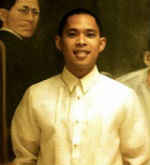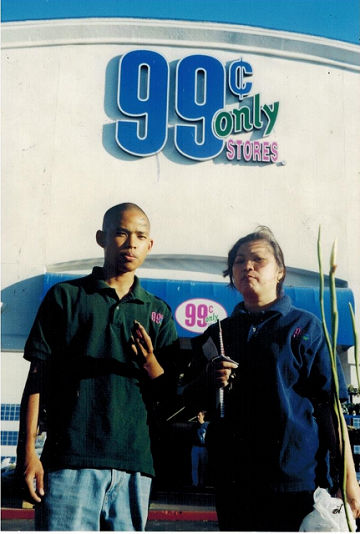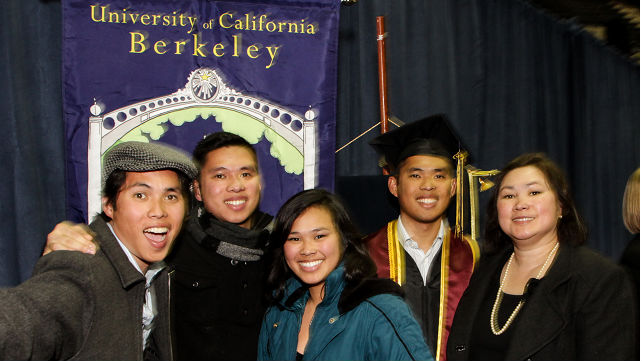SUMMARY
This is AI generated summarization, which may have errors. For context, always refer to the full article.
 There are other ways to ‘profit’ from government service other than taking a slice off of a legislator’s pork barrel fund.
There are other ways to ‘profit’ from government service other than taking a slice off of a legislator’s pork barrel fund.
For obvious reasons, the Philippine civil service is not the most likely place for someone who graduated college from a foreign university to start his or her career. It does not pay.
But that is what I did.
I graduated from UC Berkeley with a bachelor’s degree in International Political Economy with minors in Public Policy and Global Poverty & Practice in December 2009.
Soon thereafter, I juggled three part-time jobs working as a tax preparer, census enumerator and swimming coach in order to shore-up my savings in preparation for my move back to the Philippines.
Upon returning to the Philippines towards the end of 2010, I was able to secure a job at the National Economic and Development Authority’s (NEDA) Infrastructure Staff as an Economic Development Specialist.
Just recently, I received a Woodrow Wilson Public Policy and International Affairs Fellowship from Princeton University towards a degree in Master in Public Affairs. I believe it is a reward and validation of my commitment and passion to public service.
Reason to go back and give back
After college, I could have simply chosen to stay in the US and pursue a lucrative career in the private sector. I graduated with honors, was the president of a business fraternity and had strong internship experiences. More importantly, I had more than $25K in outstanding student loans to pay-off.
But I knew that I had the moral responsibility to give back given the opportunities that I received.

Immigrant story
In 2003, my family migrated to America. I was only 16 years old then and had just finished my 2nd year of high school at the Ateneo de Manila High School.
Although my family enjoyed a relatively comfortable middle-class lifestyle in the Philippines, it became apparent that life in America would be different.
My family had to separate from each other in order to cope financially. My older brother joined the US army reserves, my younger brother stayed with my aunt, while my mother, my younger sister and I stayed with my grandmother.
In order for my family to get our own apartment, everyone, except for my 10 year old sister, had to work minimum wage jobs. My mother and I worked at a retailer chain, my younger brother worked at a fast-food restaurant, while my older brother worked as a student assistant at a Veterans Affairs office.
I myself had to wake up at 5:30 am 5 days a week and bike 5 miles to go to work. Every morning, I had to mop a 10-aisle store and clean the toilets on my own for an hour and a half before the store opened; then receive truck deliveries using a manual pallet jack and a forklift for the rest of my 8-hour shift.
Education and social mobility
Education is the key to social mobility in America, so everyone, including my mother, went to school.
With the help of academic financial aid, we were able to get the education needed to move-up the social ladder.
My mother got the accounting units and computer literacy training she needed to get a job at the County government. My older brother, who is also a graduate of UC Berkeley, went on to get his CPA.

Both my younger brother and my younger sister are currently studying at UC Santa Barbara and Sacramento City College, respectively.
Today, while our family is definitely not wealthy by American standards, we are proud that we live in our own home, and have achieved a sufficient level of financial stability.
Family of public servants
Another motivation for my decision to return to the Philippines and work for the government is my desire to continue my family’s legacy of public service.
My father is a soldier. As a young army lieutenant in 1986, he was part of the Reform the Armed Forces Movement that helped topple the Marcos regime.
READ: Catapang new Nolcom commander
Further, my fraternal grandfather and grandmother spent their entire careers in the Securities and Exchange Commission and the Department of Finance as a lawyer and accountant, respectively.
Payout as a ‘pay-in’
The fellowship that I received is as much a ‘pay-in’ as a payout.
It is a payout, because I will be able to participate in an unparalleled public policy program in one of the best universities in world at zero financial cost.
However, it is also a ‘pay-in’, because it will allow me and inspire me to further my career in public service without the heavy burden of having graduate student loans.
Indeed, there are other ways to ‘profit’ from government service. – Rappler.com
#BalikBayan is a project that aims to harness and engage Filipinos all over the world to collectively rediscover and redefine Filipino identity.
Add a comment
How does this make you feel?
There are no comments yet. Add your comment to start the conversation.